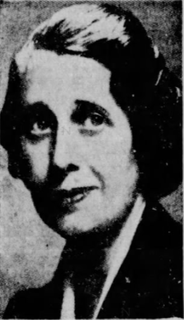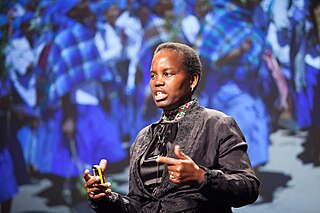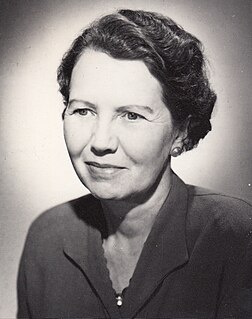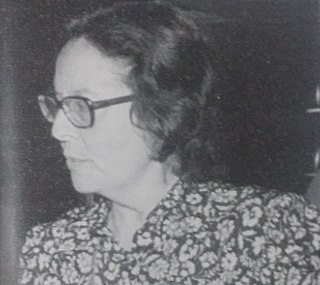Related Research Articles

Gloria Jean Watkins, better known by her pen name bell hooks, was an American author, professor, feminist, and social activist. The name "bell hooks" is borrowed from her maternal great-grandmother, Bell Blair Hooks.

Maya Angelou was an American poet, memoirist, and civil rights activist. She published seven autobiographies, three books of essays, several books of poetry, and is credited with a list of plays, movies, and television shows spanning over 50 years. She received dozens of awards and more than 50 honorary degrees. Angelou is best known for her series of seven autobiographies, which focus on her childhood and early adult experiences. The first, I Know Why the Caged Bird Sings (1969), tells of her life up to the age of 17 and brought her international recognition and acclaim.

Lorraine Vivian Hansberry was a playwright and writer. She was the first African-American female author to have a play performed on Broadway. Her best known work, the play A Raisin in the Sun, highlights the lives of Black Americans living under racial segregation in Chicago. The title of the play was taken from the poem "Harlem" by Langston Hughes: "What happens to a dream deferred? Does it dry up like a raisin in the sun?" At the age of 29, she won the New York Drama Critics' Circle Award — making her the first African-American dramatist, the fifth woman, and the youngest playwright to do so. Hansberry's family had struggled against segregation, challenging a restrictive covenant in the 1940 US Supreme Court case Hansberry v. Lee.

Dorise Winifred Nielsen was a Canadian communist politician, feminist and teacher.

Wangarĩ Muta Maathai was a Kenyan social, environmental and political activist and the first African woman to win the Nobel Peace Prize. As a beneficiary of the Kennedy Airlift she studied in the United States, earning a bachelor's degree from Mount St. Scholastica and a master's degree from the University of Pittsburgh. She went on to become the first woman in East and Central Africa to become a Doctor of Philosophy, receiving her Ph.D. from the University of Nairobi in Kenya.
Alda Bandeira Tavares Vaz da Conceição is a politician in São Tomé and Príncipe.

Unity Dow is a Motswana lawyer, human rights activist, specially elected member of parliament, and a writer. She formerly served as a judge on the High Court of Botswana and in various government ministries. Born in the Bechuanaland Protectorate to a seamstress and a farmer, who insisted on their children obtaining an education, Dow grew up in a traditional rural village before modernisation. She earned a law degree in 1983 from the University of Botswana and Swaziland, though her studies were completed in Swaziland and Edinburgh, Scotland, as Botswana had no law school at the time. After her graduation, Dow opened the first all-woman law firm in Botswana and in 1997 became the first woman to be appointed as a judge to the country's High Court.
Ngina Kenyatta, popularly known as "Mama Ngina", is the former First Lady of Kenya. She is the widow of the country's first president, Jomo Kenyatta (~1889–1978), mother of the current president Uhuru Kenyatta.

ChiefFunmilayo Ransome-Kuti, MON, also known as Funmilayo Anikulapo-Kuti, was a Nigerian educator, political campaigner, suffragist, and women's rights activist.
Virginia Edith Wambui Otieno (1936–2011), born Virginia Edith Wambui Waiyaki, who became Wambui Waiyaki Otieno Mbugua after her second marriage, and generally known as Wambui, was born into a prominent Kikuyu family and became a Kenyan activist, politician and writer. Wambui became prominent in 1987 because of a controversial legal fight between her and the clan of her Luo husband Silvano Melea Otieno over the right to bury Otieno. The case involved the tension between customary law and common law in modern-day Kenya in the case of an inter-tribal union. The various legal hearings this case stretched over more than five months and the final verdict suggested that a Kenyan African was presumed to adhere to the customs of the tribe they were born into unless they clearly and unequivocally broke all contact with it. As Otieno retained some rather tenuous links with his clan, they were awarded the right to bury him, ignoring Wambui's wishes. However, Wambui inherited most of her late husband's estate.

Chief Wuraola Adepeju Esan (1909–1985) was a Nigerian teacher, feminist and politician. She combined her political ambitions with those of a traditional noblewoman by serving as the Iyalode of Ibadan.

Vernie Merze Tate was a professor, scholar and expert on United States diplomacy. She was the first African-American graduate of Western Michigan Teachers College, first African-American woman to attend the University of Oxford, first African-American woman to earn a Ph.D. in government and international relations from Harvard University, as well as one of the first two female members to join the Department of History at Howard University.

Helen Marguerite (Emery) Roberts was an American writer, photographer, and multilingual educator. From 1958 to 1975, she battled illiteracy in Africa, teaching reading, writing, health and Christian religion to thousands of illiterate adults. In the course of her African work, she mentored and sponsored many promising young Africans, encouraging them to pursue higher education, including Barack H. Obama, the father of President of the United States Barack Obama.

Maria Gaetana Agnesi was an Italian mathematician, philosopher, theologian, and humanitarian. She was the first woman to write a mathematics handbook and the first woman appointed as a mathematics professor at a university.
Muthoni Gachanja Likimani is a Kenyan activist and writer, who has published works of both fiction and non-fiction, as well as children's books. In her career she has also been a broadcaster, actress, teacher and publisher. She was the first Kenyan beauty queen, the first African to establish a public relations firm in Kenya and one of the country's earliest female authors.
Bolanle Awe is a Nigerian history professor.

Gladys Adda was a Tunisian communist and activist for independence and women's rights.
Mma-Besi or Mabisa was a mohumagadi of the BaNgwato of the Bechuanaland Protectorate, now Botswana, and the first wife of king Khama III. She was also known as Elisabeta Gobitsamang Khama.
Edith Mary Bataringayanée Kaijuka (1929–1977) was a prominent Ugandan Political Activist and Ugandan Political figure in post-independence Uganda. She was a co-founder of the Ugandan Women's Union and the Uganda Council of Women alongside Rhoda Kalema and Theresa Mbire. She was married to Basil Kiiza Bataringaya a prominent Ugandan politician in post-independence Uganda.
Gaudencia Aoko was a Kenyan religious leader who helped lead two African-initiated churches. She was heavily involved with the early development of Legio Maria.
References
- 1 2 Professor Henry Louis Gates, Jr.; Professor Emmanuel Akyeampong; Mr. Steven J. Niven (2 February 2012). Dictionary of African Biography. OUP USA. pp. 1–. ISBN 978-0-19-538207-5.
- ↑ Kathleen E. Sheldon (2005). Historical Dictionary of Women in Sub-Saharan Africa. Scarecrow Press. ISBN 978-0-8108-5331-7.
- ↑ Godwin R. Murunga; Shadrack W. Nasong'o (15 March 2007). Kenya: The Struggle for Democracy. Zed Books. pp. 180–. ISBN 978-1-84277-857-9.
- ↑ Iris Berger (26 April 2016). Women in Twentieth-Century Africa. Cambridge University Press. pp. 100–. ISBN 978-0-521-51707-2.
- ↑ Bea Sandler (1970). The African Cookbook. Carol Publishing Group. pp. 5–. ISBN 978-0-8065-1398-0.